Mary Wollstonecraft sculpture condemned as ‘naked silver Barbie’
Maggi Hambling’s statue is intended to represent the feminist icon’s imagination
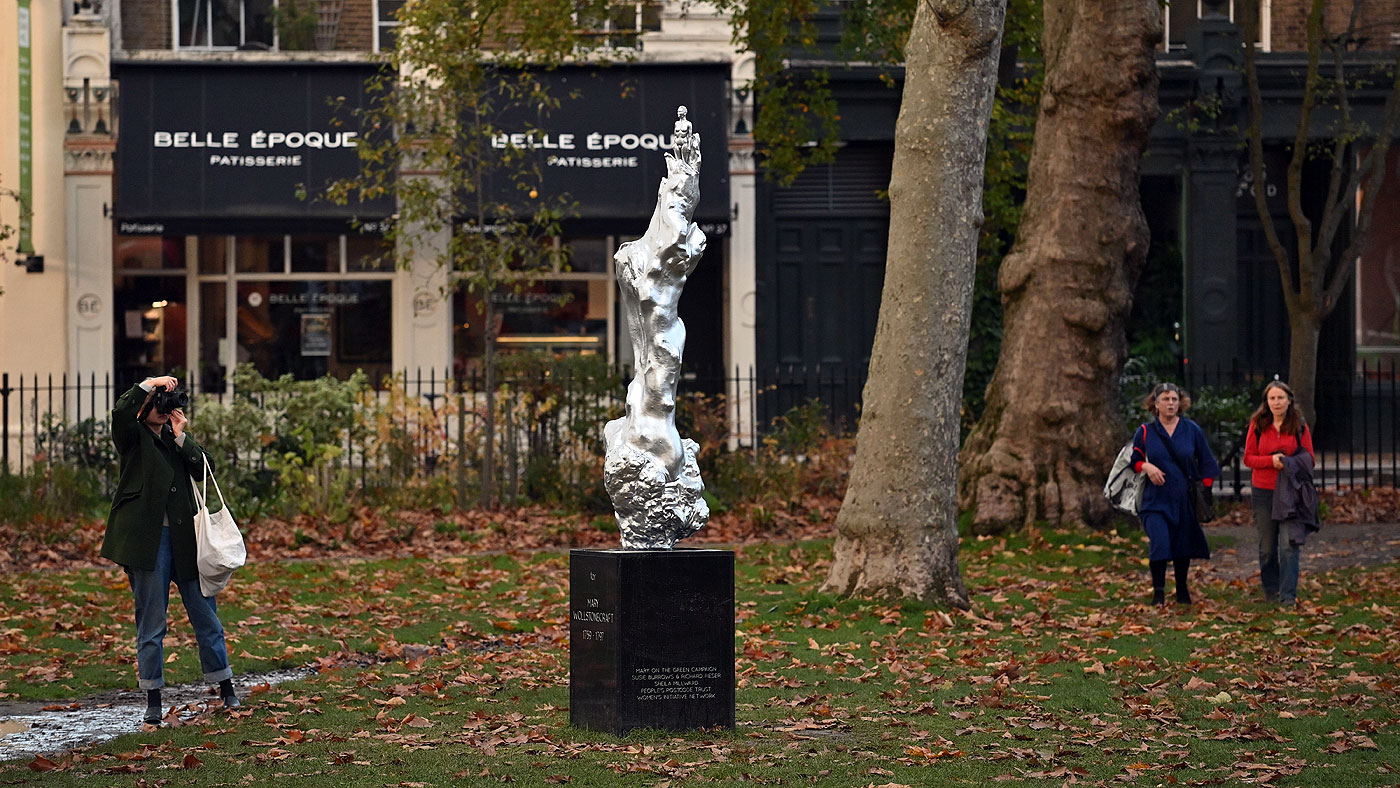
A free daily email with the biggest news stories of the day – and the best features from TheWeek.com
You are now subscribed
Your newsletter sign-up was successful
A statue created to celebrate the life and ideas of Mary Wollstonecraft instead depicts the philosopher as a “naked sliver Barbie”, according to critics.
Maggi Hambling’s sculpture of Wollstonecraft - best known for her 1792 work Vindication of the Rights of Woman - “portrays a silver female figure emerging from a swirling mingle of female forms”, says the BBC.
But that symbolic depiction has won few fans after being unveiled on Tuesday night in Newington Green, north London, where protesters were quick to voice their objections. One demonstrator “was seen covering the statue in a black T-shirt with the message ‘Woman - Adult human female’,” the Daily Mail reports. The slogan “has been linked to anti-transgender movements”, the paper adds.
The Week
Escape your echo chamber. Get the facts behind the news, plus analysis from multiple perspectives.

Sign up for The Week's Free Newsletters
From our morning news briefing to a weekly Good News Newsletter, get the best of The Week delivered directly to your inbox.
From our morning news briefing to a weekly Good News Newsletter, get the best of The Week delivered directly to your inbox.
The T-shirt was soon removed, but questions about the figure’s nakedness persisted.
“Nameless, nude and conventionally attractive is the only way women have ever been acceptable in public sculpture,” tweeted writer Imogen Hermes Gowar.
Fellow author Dr Laura Wood detected a double standard, tweeting: “How many of our important male writers are depicted naked in their statues? You never see Charles Dickens with his balls out, do you?”
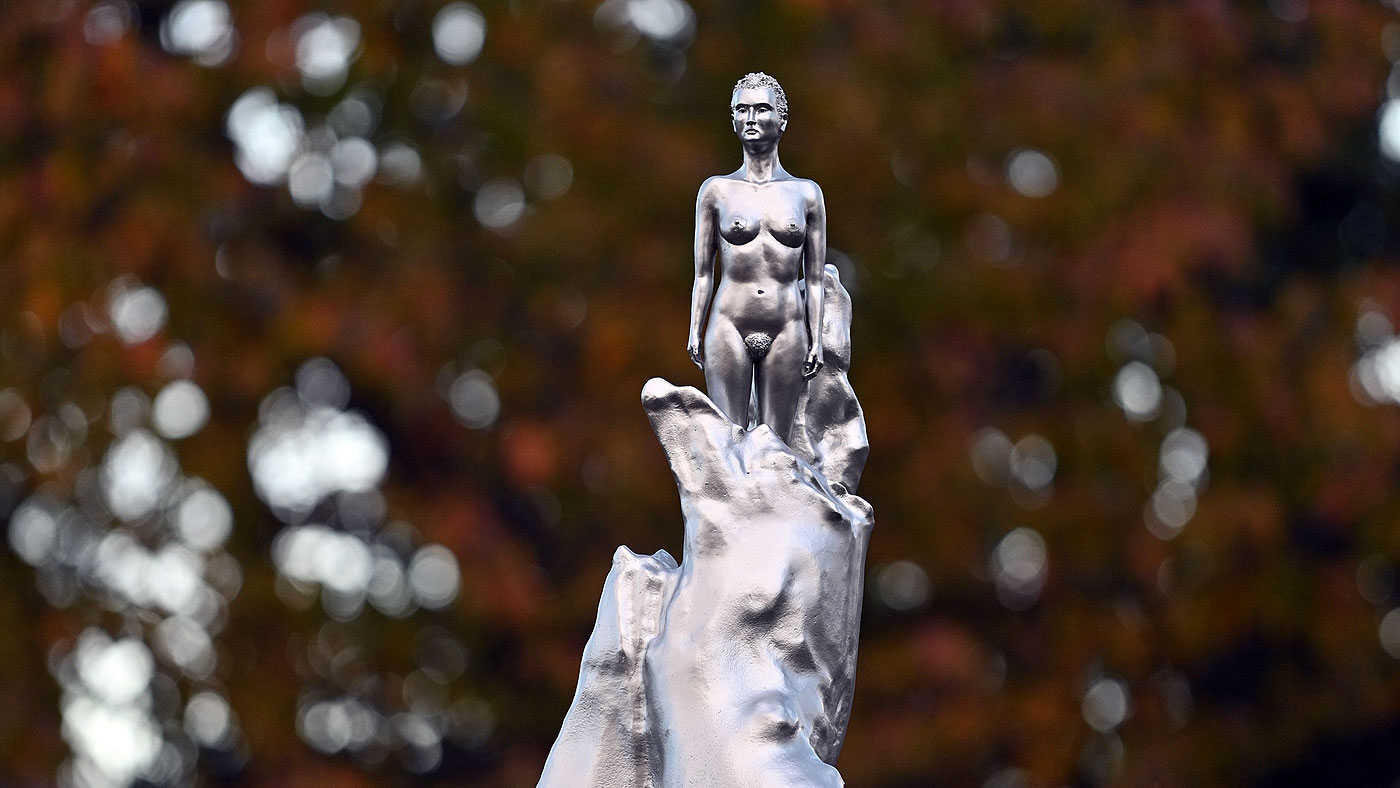
But sculptor Hambling “said the critics had confused Wollstonecraft with the figure in the work”, the London Evening Standard reports.
A free daily email with the biggest news stories of the day – and the best features from TheWeek.com
“The whole sculpture is called ‘for Mary Wollstonecraft’ and that’s crucially important,” Hambling told the paper. “It’s not an idea ‘of’ Mary Wollstonecraft naked.”
The figure “has to be naked because clothes define people”, she added. “Statues in historic costume look like they belong to history because of their clothes. It’s crucial that she is ‘now’.”
That argument appears to have convinced jistorian Dr Hannah Dawson, who tweeted that Hambling seemed to be “drawing on what Wollstonecraft herself said about statues: that they are ‘not modelled after nature’, but are rather projections of the imagination”.
“I went to see the statue with my own eyes,” Dawson added, “and found this completely beautiful sculpture in the setting sun, surrounded by such life and bursting conversation.”
Holden Frith is The Week’s digital director. He also makes regular appearances on “The Week Unwrapped”, speaking about subjects as diverse as vaccine development and bionic bomb-sniffing locusts. He joined The Week in 2013, spending five years editing the magazine’s website. Before that, he was deputy digital editor at The Sunday Times. He has also been TheTimes.co.uk’s technology editor and the launch editor of Wired magazine’s UK website. Holden has worked in journalism for nearly two decades, having started his professional career while completing an English literature degree at Cambridge University. He followed that with a master’s degree in journalism from Northwestern University in Chicago. A keen photographer, he also writes travel features whenever he gets the chance.
-
 House votes to end Trump’s Canada tariffs
House votes to end Trump’s Canada tariffsSpeed Read Six Republicans joined with Democrats to repeal the president’s tariffs
-
 Bondi, Democrats clash over Epstein in hearing
Bondi, Democrats clash over Epstein in hearingSpeed Read Attorney General Pam Bondi ignored survivors of convicted sex offender Jeffrey Epstein and demanded that Democrats apologize to Trump
-
 Are Big Tech firms the new tobacco companies?
Are Big Tech firms the new tobacco companies?Today’s Big Question Trial will determine if Meta, YouTube designed addictive products
-
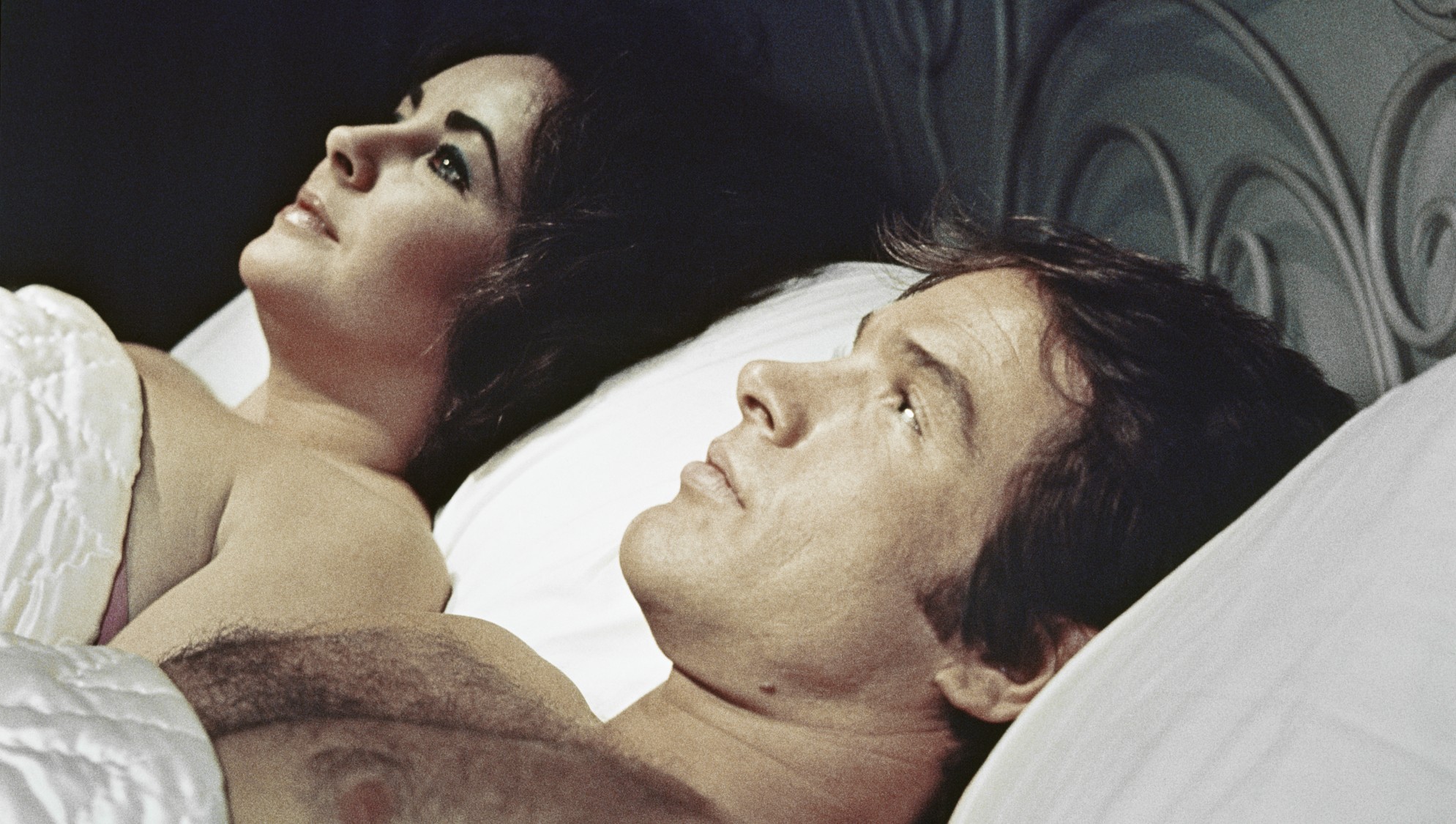 How coupling up became cringe
How coupling up became cringeTalking Point For some younger women, going out with a man – or worse, marrying one – is distinctly uncool
-
 2024 and the rebirth of body horror
2024 and the rebirth of body horrorTalking Point In a year of female-focused 'scintillating gore', have horror films gone too far?
-
 Saoirse Ronan: how the actress went viral
Saoirse Ronan: how the actress went viralIn the Spotlight The actress dropped a 'chat-icide bomb' on Graham Norton's BBC show
-
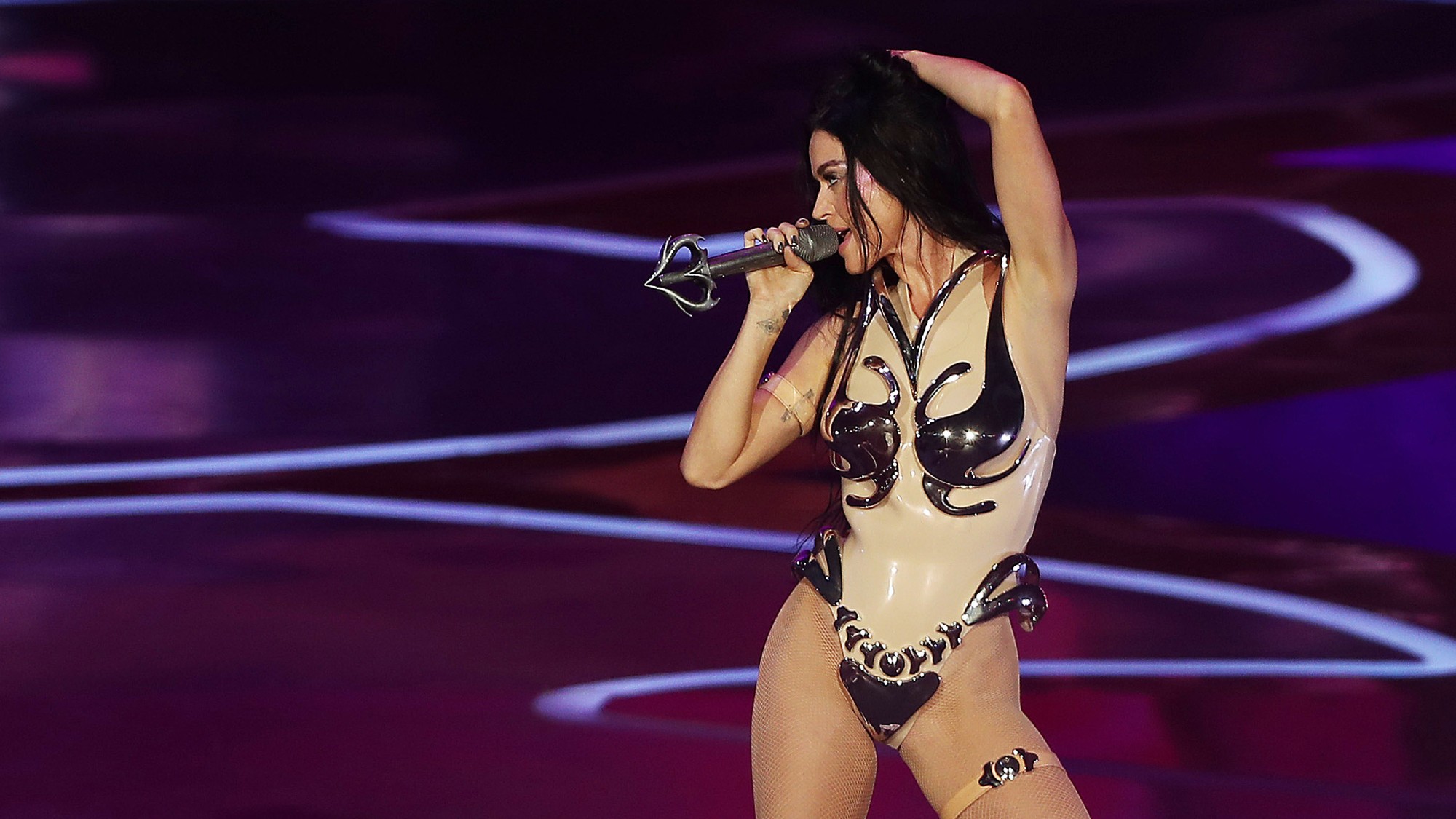 From 'Teenage Dream' to millennial nightmare – where did it go wrong for Katy Perry?
From 'Teenage Dream' to millennial nightmare – where did it go wrong for Katy Perry?Talking Points Brutal reviews for new album represent a serious setback in the pop star's attempted return
-
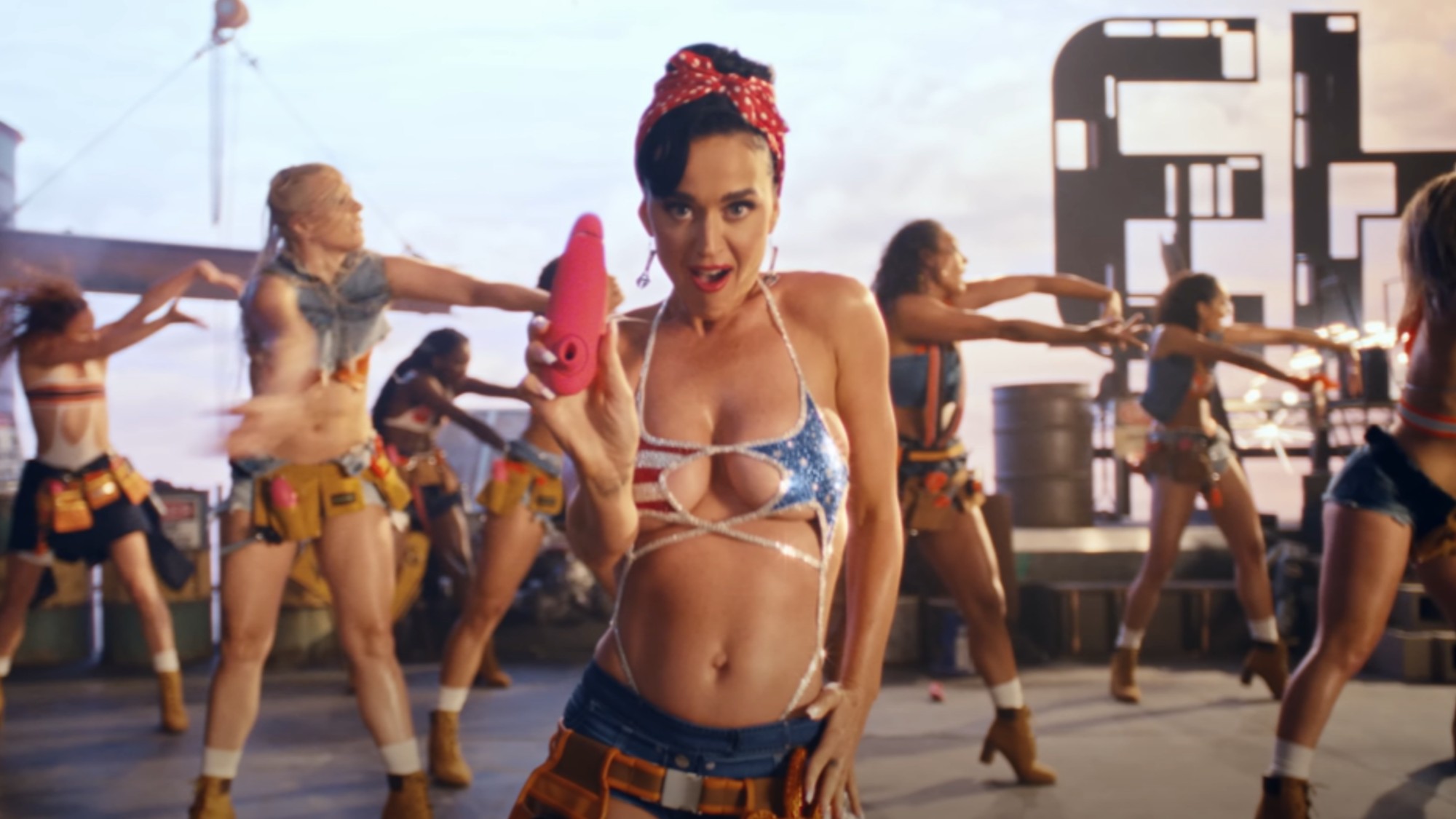 Why Katy Perry's on trial at the 'pop culture Hague'
Why Katy Perry's on trial at the 'pop culture Hague'Talking Point Her new single, an 'attempt' at a 'feminist anthem', has been ferociously slated for retreading dated ground
-
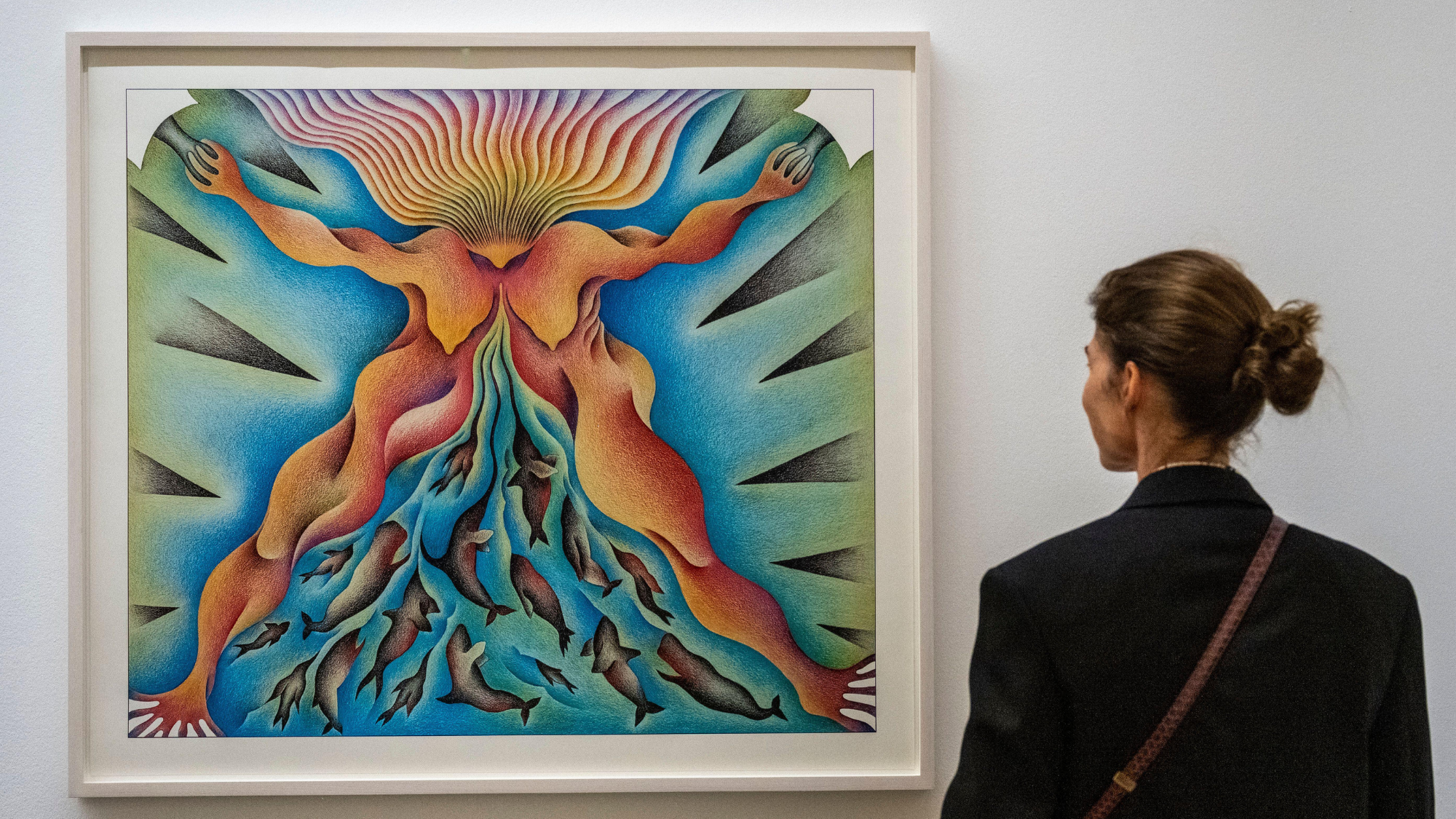 Judy Chicago: Revelations – an 'absorbing' show from a pioneering feminist artist
Judy Chicago: Revelations – an 'absorbing' show from a pioneering feminist artistThe Week Recommends The new exhibition contains some 200 paintings, drawings and installations
-
 Cristina Rivera Garza continues crossing borders into award-winning territories
Cristina Rivera Garza continues crossing borders into award-winning territoriesIn the Spotlight The prolific Mexican author just won the 2024 Pulitzer for Memoir or Autobiography
-
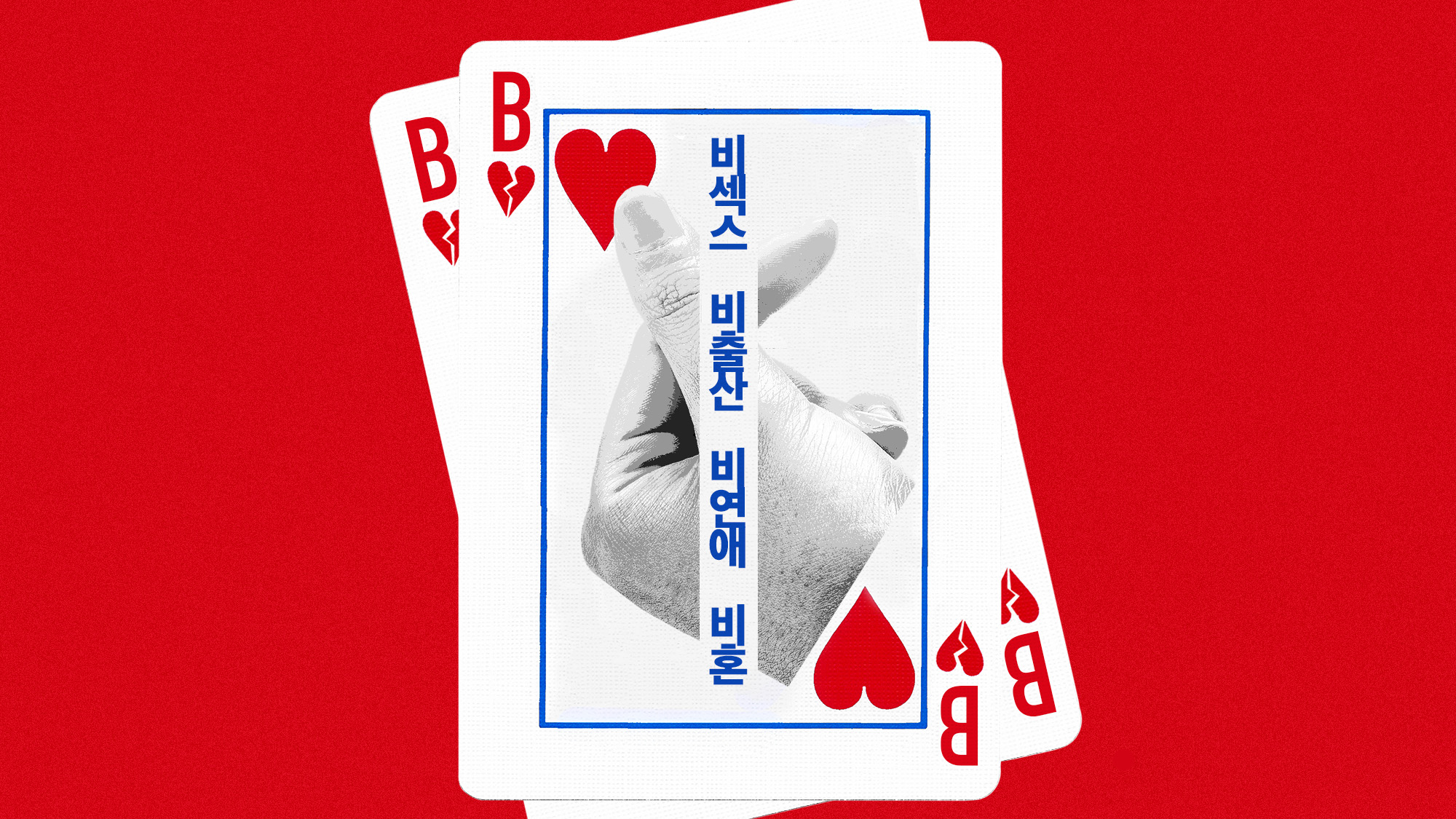 4B movement: what is it and how has it evolved?
4B movement: what is it and how has it evolved?The Explainer Why some women are choosing the nuclear option for dealing with misogyny